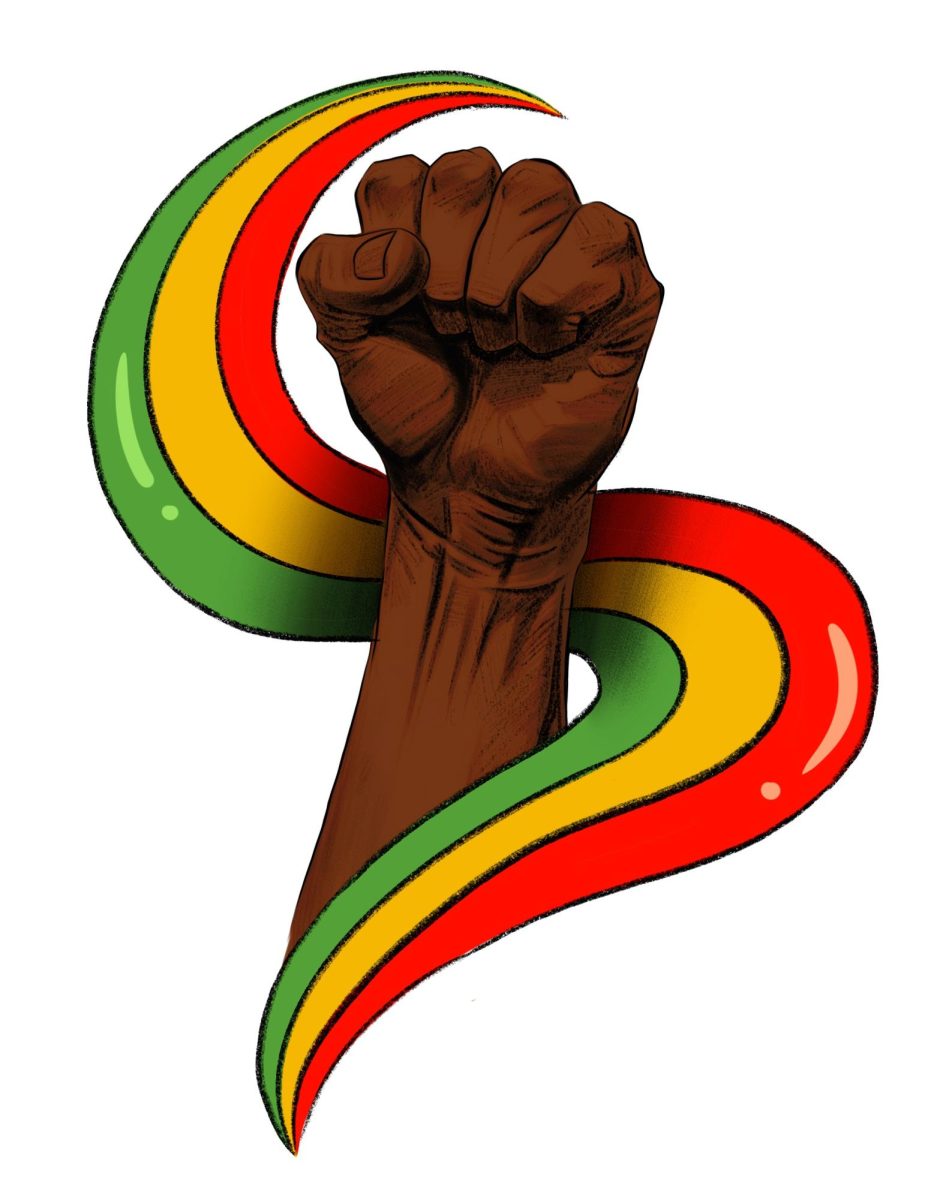The origins of Black History Month started when Dr. Carter G. Woodson founded the Association for the Study of African American Life and History (ASALH) in 1915. He later initiated the first Negro History Week in February of 1926. Former President Gerald Ford implemented Black History Week in 1975, “urging all Americans to recognize the important contribution made to our nation’s life and culture by black citizens.” In 1976, the ASALH reestablished the week into a month-long recognition. Since then, Black History Month has been widely celebrated and highlighted across America, with additional countries dedicating months specifically to those of African descent.
Evanston Township High School has a history of incorporating Black studies and celebrations into regular curriculums during February. For BHM in 2023, ETHS went above and beyond throughout the month. They hosted different performances from the likes of the Hiplet Ballerinas (a Chicago-based dance troop fusing classical pointe technique, Hip-Hop, and a variety of other dance styles), a weekly Black History Month Film Festival, and collaborating with District 65 for a literacy event. This year, however, ETHS isn’t doing anything special. Instead of inviting acclaimed performers or speakers, teaming up with outside organizations, or even adding a curriculum for teachers to follow; there’s just a Black History Spirit Week.
On the morning of February 3rd, it was “Do it for the Gram” Monday, where students could dress up as their favorite Black American Idol. The rest of that week was filled with ridiculous themes such as “Motion Tuesday” (wear a bonnet or an “ethnic hairstyle”) and “Throwback Demure Thursday” (dress up in 70s Black Panther, 80s Disco, 90s Hip-Hop, or Y2K Fashion). As a school ranked 39th out of over 700 high schools in Illinois, according to U.S News, and with a 23.5% black student population (2022-2023 school year), certainly ETHS could do better than a flimsy spirit month.
“One thing that ETHS can do is to highlight black student voices, especially from the diaspora and all walks of life. It’s time for people to know that black people aren’t a monolith and that we all don’t act or look a stereotypical way. There are so many layers to us, there’s so much rich history and I just wish that knowledge was more accessible. I didn’t learn about Black history until I got to college, and not everyone has that luxury,” said Nala Bishop, the Early College and Career Experience intern at ETHS. “I hope going forward that there are more voices, students and adults, to help celebrate and put on a Black History Month we can all enjoy. Supporting student voices from all backgrounds is what going to be valuable for true inclusivity.”
In a school that has such a large Black student and staff population, where did everything go wrong? The problem isn’t solely on the lack of thought with the spirit month. Black people are so much more than “ethnic hairstyles” and Y2K fashion. Black history isn’t about dressing up as your favorite Black American Idol and walking down a miniature red carpet, the culture runs deep with resistance and retaliation, the Civil Rights Movement, the abolishment of slavery, and the Black Lives Matter movement are what make Black history. The creation of Hip-Hop, Jazz, Soul, Gospel, Funk, R&B, and all the music styles in America. Mornings spent with your hair being braided, twisted, locked, cornrowed, and styled, with the laughter of the barbershops and salons. That is what Black history is, the joy, the pain, the struggle, and the pride that comes with being black. That is what Black History Month should be.
“It just doesn’t sit right with me,” said a junior at ETHS. “The whole purpose of Black History Month was to celebrate Black people and their achievements. The way the school is doing it isn’t what its intended purpose was. I think that ETHS needs to do better than just a spirit month or week. There must be a basis for all students to learn about Black history, not just this ignorant celebration.”
If ETHS wants to continue being a school credited with its racial equity progression, it needs to do better with Black History Month. Invite black business owners to speak to different classes, have teachers dedicate days to learning about important black individuals in history and today, commemorate black teachers and staff members, and provide more education opportunities across all grades and subjects so that all students can learn more about Black people and their accomplishments as well as their struggles.






